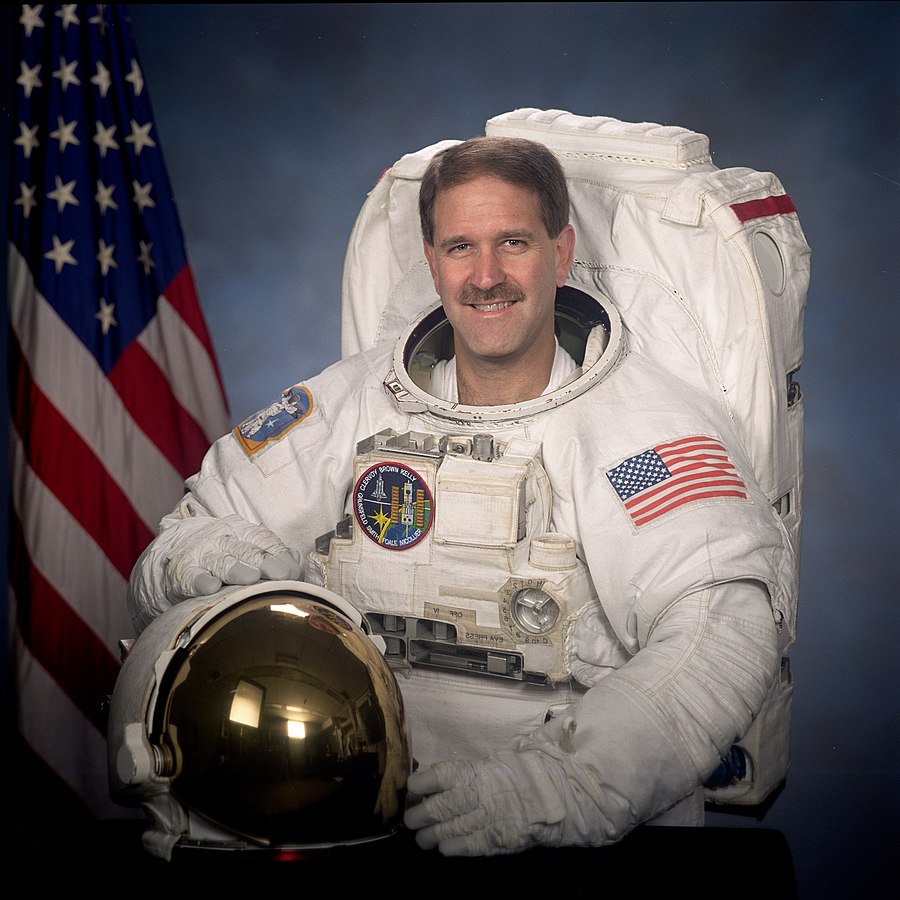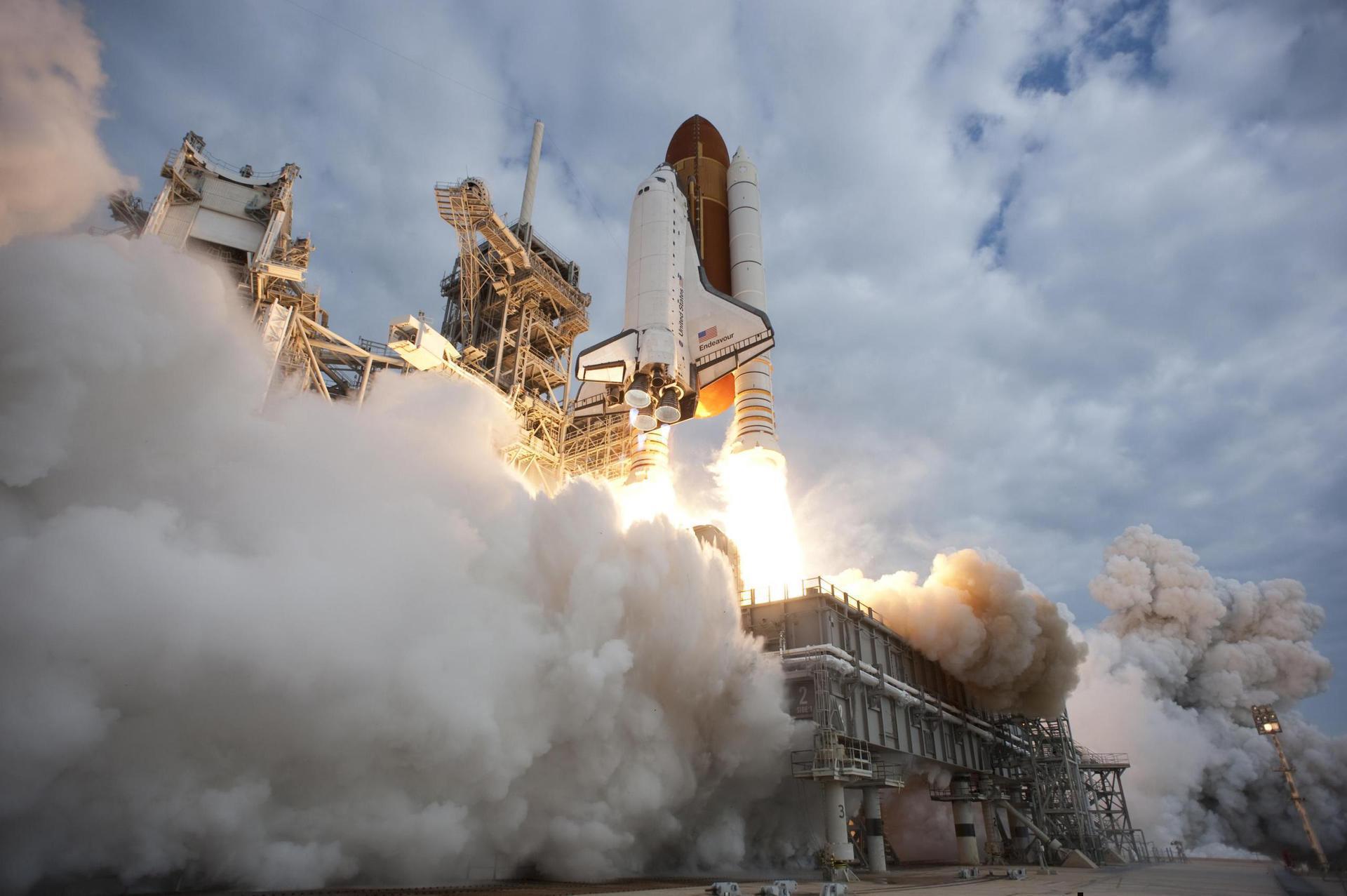John M. Grunsfeld
American - (NASA)
Retired
Date of Birth: Oct. 10, 1958
Age: 67
John Mace Grunsfeld is an American physicist and a former NASA astronaut. He is a veteran of five Space Shuttle flights and has served as NASA Chief Scientist. His academic background includes research in high energy astrophysics, cosmic ray physics and the emerging field of exoplanet studies with specific interest in future astronomical instrumentation. After retiring from NASA in 2009, he served as the Deputy Director of the Space Telescope Science Institute in Baltimore, Maryland. In January 2012, he returned to NASA and served as associate administrator of NASA's Science Mission Directorate (SMD). Grunsfeld announced his retirement from NASA in April 2016.
Space Shuttle Endeavour / OV-105 | STS-67
National Aeronautics and Space Administration | United States of AmericaKennedy Space Center, FL, USA
March 2, 1995, 6:38 a.m.
Space Shuttle Atlantis / OV-104 | STS-81
National Aeronautics and Space Administration | United States of AmericaKennedy Space Center, FL, USA
Jan. 12, 1997, 9:27 a.m.
Space Shuttle Discovery / OV-103 | STS-103
National Aeronautics and Space Administration | United States of AmericaKennedy Space Center, FL, USA
Dec. 20, 1999, 12:50 a.m.
Space Shuttle Columbia / OV-102 | STS-109
National Aeronautics and Space Administration | United States of AmericaKennedy Space Center, FL, USA
March 1, 2002, 11:22 a.m.
Status: Success
Mission:
STS-109 (SM3B) was a Space Shuttle mission that launched from the Kennedy Space Center on 1 March 2002. It was the 108th mission of the Space Shuttle program, the 27th flight of the orbiter Columbia and the fourth servicing of the Hubble Space Telescope. It was also the last successful mission of the orbiter Columbia before the ill-fated STS-107 mission, which culminated in the Columbia disaster.
Low Earth OrbitSpace Shuttle Atlantis / OV-104 | STS-125
National Aeronautics and Space Administration | United States of AmericaKennedy Space Center, FL, USA
May 11, 2009, 6:01 p.m.
Status: Success
Mission:
STS-125, or HST-SM4 (Hubble Space Telescope Servicing Mission 4), was the fifth and final space shuttle mission to the Hubble Space Telescope (HST). Space Shuttle Atlantis carried two new instruments to the Hubble Space Telescope, the Cosmic Origins Spectrograph and the Wide Field Camera 3. The mission also replaced a Fine Guidance Sensor, six gyroscopes, and two battery unit modules to allow the telescope to continue to function at least through 2014. The crew also installed new thermal blanket insulating panels to provide improved thermal protection, and a soft-capture mechanism that would aid in the safe de-orbiting of the telescope by an unmanned spacecraft at the end of its operational lifespan.
Low Earth OrbitThe National Aeronautics and Space Administration is an independent agency of the executive branch of the United States federal government responsible for the civilian space program, as well as aeronautics and aerospace research. NASA have many launch facilities but most are inactive. The most commonly used pad will be LC-39B at Kennedy Space Center in Florida.
Falcon 9
Starlink Group 17-26
Space Launch Complex 4E - Vandenberg SFB, CA, USAA batch of 25 satellites for the Starlink mega-constellation - SpaceX's project for space-based Internet communication system.
Falcon 9
Starlink Group 6-110
Space Launch Complex 40 - Cape Canaveral SFS, FL, USAA batch of 29 satellites for the Starlink mega-constellation - SpaceX's project for space-based Internet communication system.
Falcon 9
Starlink Group 6-104
Space Launch Complex 40 - Cape Canaveral SFS, FL, USAA batch of 28 satellites for the Starlink mega-constellation - SpaceX's project for space-based Internet communication system.
Falcon 9
Starlink Group 17-25
Space Launch Complex 4E - Vandenberg SFB, CA, USAA batch of 25 satellites for the Starlink mega-constellation - SpaceX's project for space-based Internet communication system.
Falcon 9
Starlink Group 10-36
Space Launch Complex 40 - Cape Canaveral SFS, FL, USAA batch of 29 satellites for the Starlink mega-constellation - SpaceX's project for space-based Internet communication system. First Starlink laun…



